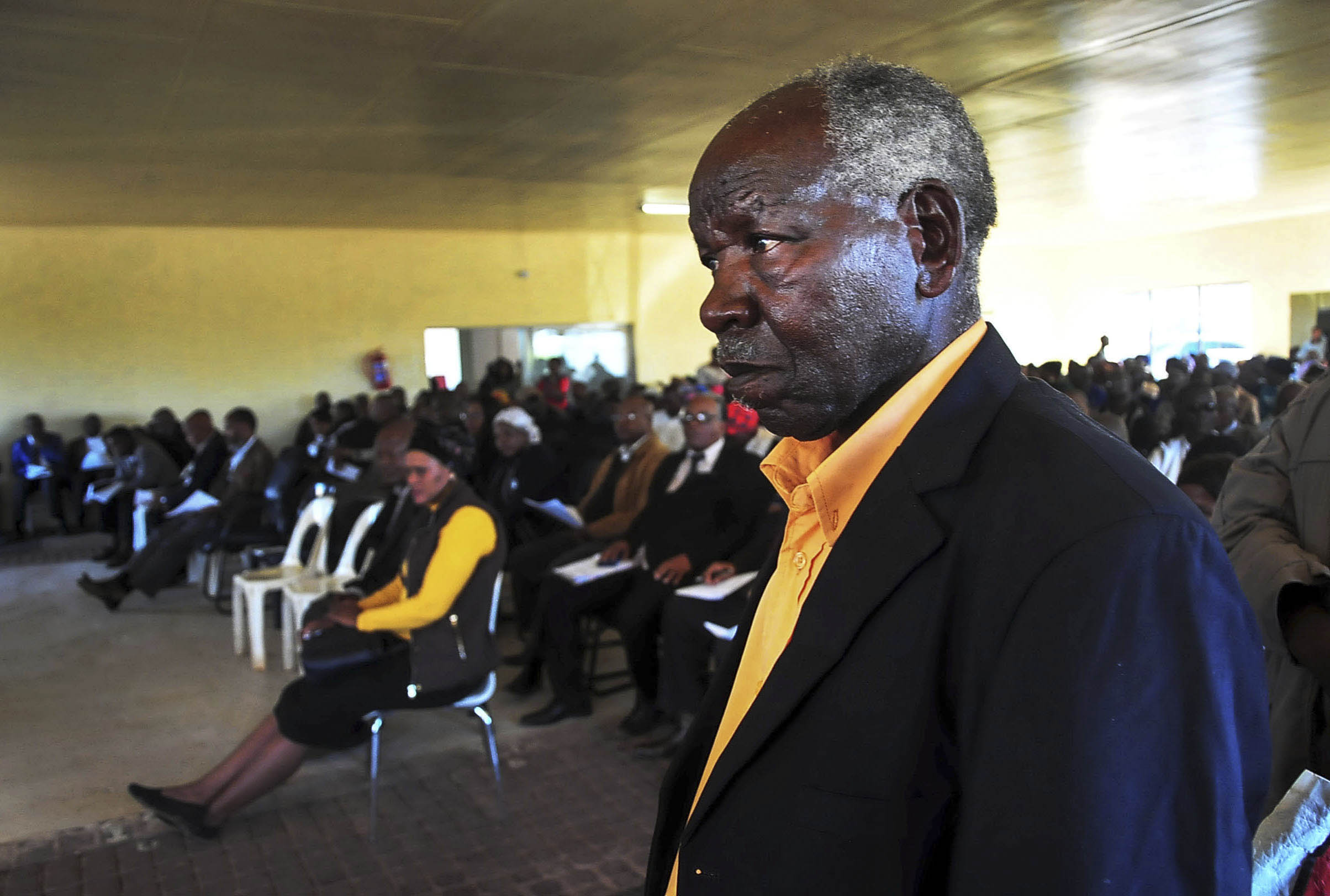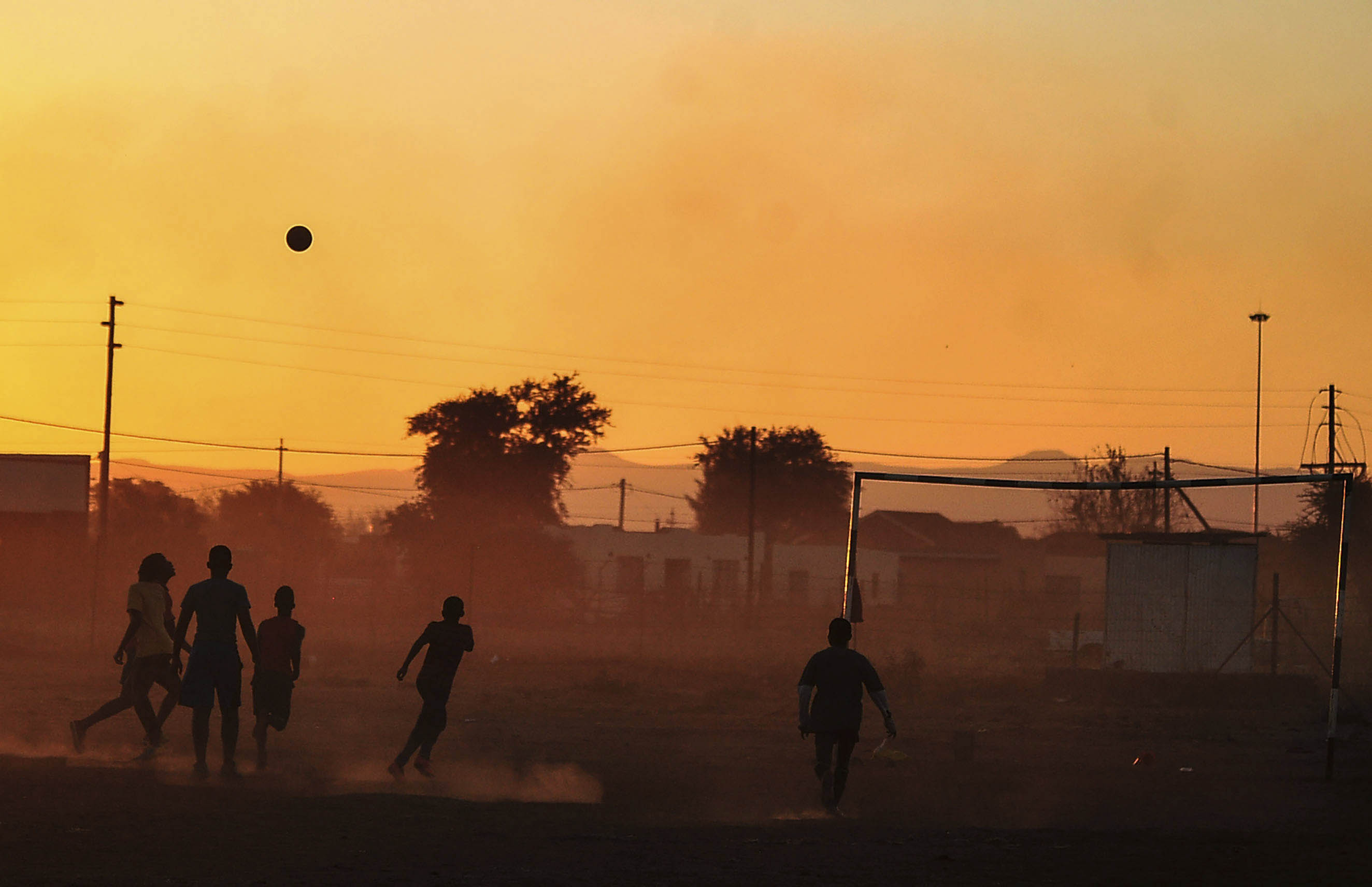Restitution: In the village of Ga-Masemola in the Sekhukhune district of Limpopo. There are still 1 866 outstanding land claims in the province that were lodged before the original 1998 cut-off date
It took Manare Frans Molele at least three hours to drive to the municipal hall in Jane Furse, Limpopo, where scores of people had gathered to make their submissions on the Restitution of Land Rights Bill.
The Bill proposes certain amendments to the 1994 Restitution of Land Rights Act. These include extending the date for lodging land claims from the initial cut-off date of December 31 1998.
Back in 1997, Molele and his kinsmen lodged a claim to 19 000 hectares of commercial farming land near the towns of Mogwadi and Senwabarwana in northwestern Limpopo. But 21 years on, the 135 families whose forebears were forcibly removed from the land in 1936 are still waiting in frustration to have their claim processed.
When he left his home in Mogwadi on Tuesday morning, the 105th anniversary of the passing of the notorious Natives Land Act of 1913, Molele had only one mission in mind.
“I wanted to tell them [the committee] that these hearings and amendments are a waste of time because there are still many outstanding claims [but] they want to open for new claims,” he said, after making an oral submission in the late afternoon.
Last month, the minister of rural development and land reform, Maite Nkoana-Mashabane, told a gathering in Sekhukhune — where she was handing over a title deed to the Roka Lebea community — that there are still 1 866 outstanding claims in Limpopo. She said 7 374 claims had been lodged in the province before the 1998 cut-off date.
The Act was amended in 2014 to allow for the reopening of a new window for submission of claims and to set a new cut-off date for June 30 2019. Yet in July 2016 the Constitutional Court ruled that the amendments were invalid and interdicted the Commission for the Restitution of Land Rights from processing any land claims lodged after July 1 2014 unless it finalised all the estimated 8 000 outstanding claims submitted by the 1998 cut-off date.
READ MORE: Land expropriation without compensation: Public hearings to begin in June
This was after the Land Access Movement of South Africa (Lamosa) and five other organisations and communal property associations (CPAs) took 14 state organs and four communities to the Constitutional Court, arguing that the public consultation process leading up to the amendments was flawed.
The parliamentary committee on rural development and land reform commenced with countrywide public hearings on the amendments this week. Only two were held in Limpopo’s five districts: one in Vhembe in Thohoyandou on Monday and the other in Jane Furse, Sekhukhune, the next day.
But there was dissatisfaction among traditional leaders, community representatives and land rights organisations about the amount of time scheduled for the hearings. Curious locals were not even aware that the hearings were being held in their town, with some wandering into the hall hoping they would be offered refreshments, as is the norm with government functions.
“This amendment is a delaying tactic. They want to buy time so that we can go to the election next year,” said Molele.
He said the business plans for use on the land they are claiming have been gathering dust for the past 20 years. “It is frustrating. They have been telling us all this time they are busy with other claims. Why can’t they assist us?”
Billy Masha of Lamosa expressed surprise that the committee was conducting hearings when it hadn’t met the guidelines set down by the Constitutional Court in its 2016 judgment. “We are disappointed and surprised that you are gathered here while you still have outstanding [land] claims from 18 years ago,” he said.
 [A community elder waits to make a submission during public hearings by the parliamentary committee on the restitution of land rights in Sekhukhune in Limpopo this week. (Lucas Ledwaba/Mukurukuru Media)]
[A community elder waits to make a submission during public hearings by the parliamentary committee on the restitution of land rights in Sekhukhune in Limpopo this week. (Lucas Ledwaba/Mukurukuru Media)]
Only about 100 people made it to the hearings on Tuesday. They comprised mostly traditional leaders, nongovernmental organisation (NGO) officials and political activists. In its submission, the Nkuzi Development Association decried the fact that no provision made for poor people to travel from the province’s other areas to attend the hearings.
They also lamented the lack of proper interpretation facilities to cater for people of different language groups, and raised concerns that, although attendants were given
copies of the proposed amendments, they were not provided with copies of the primary Act.
Kgosi Ngwato Maila, who is visually impaired, objected to the lack of Braille documentation at the hearings. The hearings, which were scheduled to start as early as 10am, only got under way two hours later owing to logistical issues, such as additional chairs having to be sourced from the local community.
The hearings also brought to the fore the brewing cold war between traditional leaders, NGOs and communities. Chiefs want to be recognised as custodians of the land and to be able to lodge claims on behalf of their communities, which is contrary to legislation and the wishes of communities organised under CPAs.
 [Children play football in Lenting near Lebowakgomo (Lucas Ledwaba/Mukurukuru Media)]
[Children play football in Lenting near Lebowakgomo (Lucas Ledwaba/Mukurukuru Media)]
Although the provincial Congress of Traditional Leaders of South Africa expressed satisfaction with the proposed amendments, chiefs asked the committee for more time to consult with their communities, saying they had been given inadequate notice. But in terms of legislation, chiefs cannot lodge claims on behalf of their subjects; they can only do so as individuals or members of CPAs.
Members of the public expressed their frustration with legislation governing the ownership and control of mineral rights, arguing that the current Mineral and Petroleum Resources Development Act still favoured big, white-owned companies over ordinary rural folk, as it did under apartheid. They also raised concerns that the offices of the department and the commission were far away from the public.
Vasco Mabunda of the Nkuzi Development Association, which was one of the litigants in the 2016 Constitutional Court matter, questioned the legitimacy of the hearings, saying they were a mere “political tick-box exercise”.
“What is the hurry [when you have outstanding claims]? In fact, what is the intention? Electioneering, we suspect. We charge political grandstanding,” he said.
In its submission, Nkuzi said the Commission on Restitution of Land Rights lacked capacity to settle land claims and was not equipped to offer claimants post-settlement support.
READ MORE: Land expropriation without compensation? On these conditions
“The resources should be channelled to finalising [the] 1995-98 claims. The current amendments will not result in providing land to poor people. These [hearings] are just a waste of resources and should be stopped with immediate effect,” said Mabunda.
He argued that, with a backlog of 8 000 claims outstanding from the 1995-98 period nationwide, it would take at least 35 years to settle all of them, given that the commission only settles about 560 claims annually.
In her budget vote speech last month, Nkoana-Mashabane said government planned to settle 1 151 land claims at a cost of R2‑billion in the current financial year.
Meanwhile, public hearings into the proposed amendments to section 25 of the Constitution dealing with the contentious issue of land expropriation without compensation are to begin next week. The parliamentary review committee is due to report back to Parliament by August 30.
“We need to find a solution, and the only solution is getting our grandfathers’ land back,” said Molele. — Mukurukuru Media